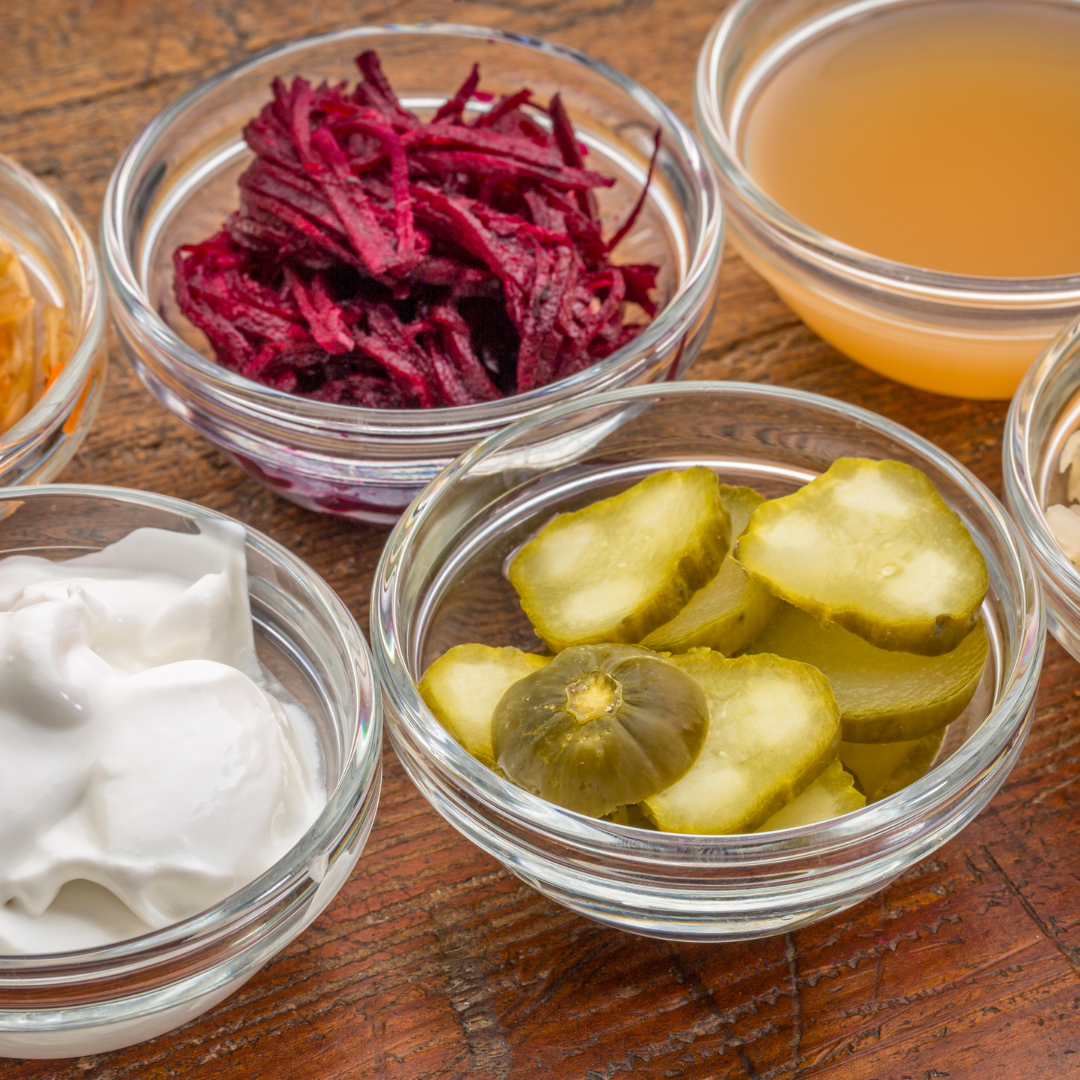Leaky Gut Syndrome
These days, the term leaky gut syndrome is commonly used. I'd like to provide you with some up-to-date information on the subject. Leaky gut has been associated with many conditions, particularly those related to the gut and chronic inflammation and it is super common for women over 40 to have it and not even know it.
While there may not yet be conclusive tests at the doctors office, there are certain dietary and lifestyle factors that can improve or worsen the condition. I will go into into these factors shortly after explaining what leaky gut is, how it occurs, and some common symptoms.
Furthermore, I have a delicious chicken broth recipe at the end of this article to share with you, which is slow-cooked and incredibly soothing and healing.

How Do I Know if I Have Leaky Gut Syndrome?
Leaky gut syndrome is a trending topic in the world of health and wellness. It has been associated with various common symptoms and conditions such as allergies, acne, intolerances, joint pain, and autoimmune diseases.
But what exactly is leaky gut? What causes it? What issues are related to it? And most importantly, what foods can help with leaky gut?
Leaky gut refers to the intestinal tract, which is a complex tube of live cells that aid in digestion, nutrient absorption, and hosting billions of beneficial gut microbes. The gut is selective in what it allows to pass through its barrier, and it purposefully blocks harmful microbes and toxins from being absorbed into the body. This is because the gut houses about 70-80% of the immune system, making it ready to defend against foreign invaders.
In a healthy gut there are tight junctions formed between the cells and nutrients go where they are supposed to. In a leaky gut the cells have tiny spaces between them which then can allow things to escape and get into the bloodstream causing all sorts of havoc.

How does a gut
become “leaky?”
The gut can become "leaky" if the cells or bonds that hold them together get damaged. This can happen due to various factors related to our diet and lifestyle. Eating too much sugar or alcohol, consuming foods that we are intolerant to, and experiencing stress, lack of sleep, infections, or certain medications like Advil can all contribute to leaky gut.
Sometimes, an imbalance in the gut microbes can also be a culprit. When our gut becomes permeable or leaky, incompletely digested nutrients, friendly or infectious microbes, toxins, and waste products can enter our bodies more easily.
Scientifically, leaky gut syndrome is known as "intestinal permeability," which means that our intestines become permeable and allow things to pass through that they usually keep out. This is not a good thing and can lead to various health issues.
So, it's essential to take care of your digestive health and avoid factors that contribute to leaky gut. Remember, a healthy gut means a healthy body!

What are the
symptoms of a leaky gut?
Your gut is closely linked to your immune system, which is why immune cells can quickly recognize and respond to any foreign invaders that make their way through a leaky gut. While a certain amount of immune response is normal and healthy, chronic inflammation can occur if too many things are able to leak in.
This inflammation can lead to a variety of symptoms, especially in the gut, including abdominal pain, bloating, gas, nausea, vomiting, heartburn, constipation, and diarrhea. Additionally, if foods aren't properly digested, their nutrients may not be absorbed properly, which can lead to a lack of essential vitamins and minerals for optimal health.
Leaky gut can also manifest in skin symptoms like acne, dryness, itchiness, rashes, eczema, and hives, as well as neurological symptoms such as brain fog, fatigue, headaches, and mood changes. Chronic inflammatory diseases like Crohn's, colitis, celiac disease, IBS, MS, heart disease, and stroke are also thought to be linked to leaky gut.
So, it's super important to take care of your gut health when you're over 40 and make sure you're not contributing to a leaky gut through diet and lifestyle factors.

What to eat for
leaky gut
The recommended approach to address leaky gut is to adopt a gut-soothing diet. This involves eliminating inflammatory foods such as grains, legumes, dairy, food additives, alcohol, and refined sugars.
Instead, focus on incorporating nutrient-dense green leafy and cruciferous vegetables that can provide fiber to feed your gut microbes. Consume foods rich in vitamin D such as fish, egg yolks, and get proper sun exposure. You can also add probiotic foods such as dairy-free yogurt, sauerkraut, and kombucha to your diet. Essential omega-3 fats found in seafood and seaweed should be included in your diet as well as coconut oil and bone broth which provide special fats called MCTs and essential amino acids respectively.
Supplementing with the amino acid l-glutamine, and collagen (see recipe below) can also heal and 'patch up' those tiny holes.
In conclusion, to address leaky gut, it is important to avoid problem foods and drinks and focus on consuming gut-soothing foods. This can help reduce symptoms ranging from digestive issues to skin conditions and even autoimmune conditions.

Recipe (Gut Soothing): Slow-Cooked Chicken Broth
Serves 6-8
1 whole chicken, cooked, bones with or without meat
3 carrots, chopped
2 celery, chopped
4 bay leaves
4 tbsp apple cider vinegar
Herbs and spices as desired (salt, pepper, paprika, parsley)
2 handfuls spinach
Instructions
1 - Place chicken bones, and meat if using, into a slow cooker.
2 - Add chopped vegetables, vinegar, and herbs/spices.
3 - Cover with hot water (about 2 litres/8 cups).
4 - Cook 8 h on medium or overnight on low.
5 - Add spinach 30 minutes before serving.
Serve & enjoy!
Tip: You can strain it before serving, or serve it with the cooked vegetables as soup.
http://www.precisionnutrition.com/all-about-nutrition-gut-health













